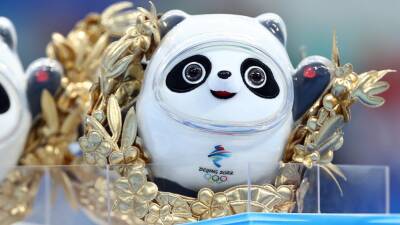Winter Olympics: Artificial snow could cause environmental damage
Artificial snow used at Beijing 2022 «poses tough environmental questions» with more than 222 million litres of water needed to create snow conditions.
Beijing 2022 will be the first Winter Olympics to rely almost 100% on artificial snow.
A report by the Sport Ecology Group at Loughborough University and Save Our Winters outlines the environmental dangers of artificial snow.
Harder artificial snow is dangerous for athletes, the report also adds.
Weather changes caused by global warming are threatening the future of snow sports and reducing the number of suitable venues for future Winter Olympics, according to the 'Slippery Slopes' report.
Of the 20 Winter Olympic venues since 1924, scientists believe only 10 will have the 'climate suitability' and natural snowfall levels needed to host an event by 2050.
At Sochi 2014, the equivalent of more than 1,000 football pitches were covered in fake snow.
The International Olympic Committee warned in a bid evaluation document that the Yanqing and Zhangjiakou venues for the 2022 Games «have minimal annual snowfall and would rely completely on artificial snow».
Almaty, a city in Kazakhstan which boasts snowy winters, was the other contender, but Beijing was seen as a safe pair of hands, having hosted the 2008 Olympics.
The host committee for Beijing 2022 estimates it will need 222 million litres of water to create snow conditions, but Beijing is one of the world's most water-scarce cities.
China has pledged to deliver a «green and clean» Games, using 100% renewable energy.
The production of artificial snow can be energy and water-intensive, even if powered renewably, and often chemicals or biological additives are added to enhance quality and slow melt.
The chemically-treated water can decrease







